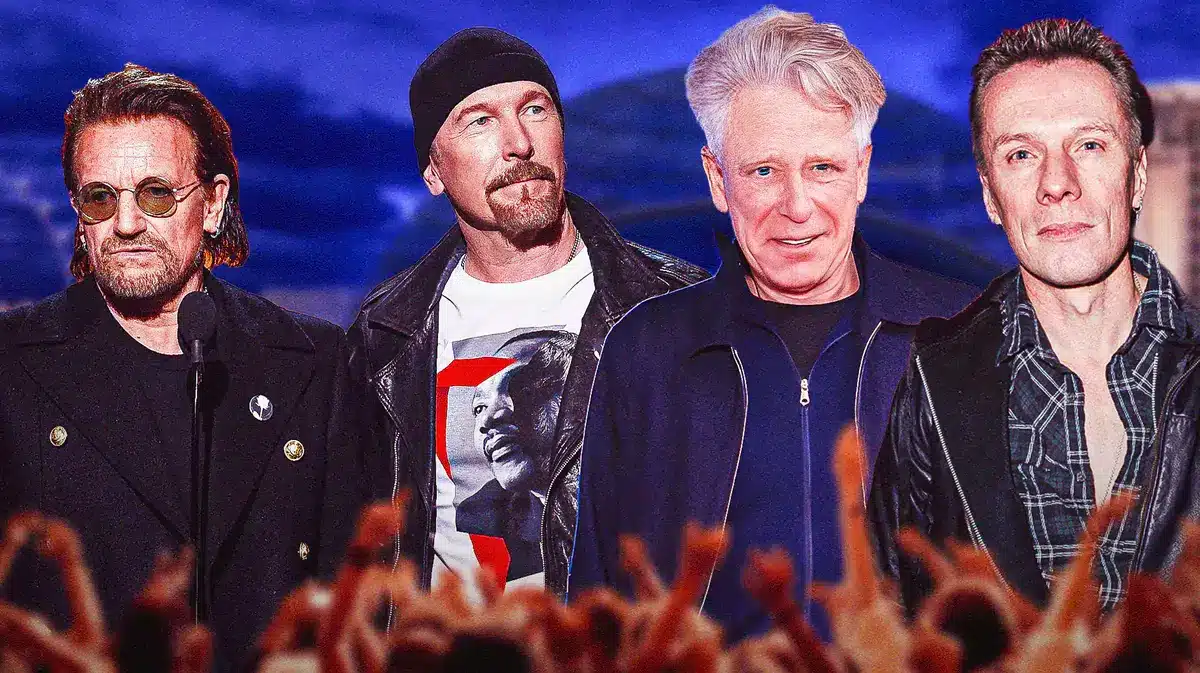15 years ago, U2 released No Line on the Horizon.
In the canon of the band, the album is like the forgotten child. It came between How to Dismantle an Atomic Bomb and Songs of Innocence. The latter introduced a Bono-centric era for the band that continues to this day.
But in between those was No Line on the Horizon. Weirdly, the album was pivotal to the band's progression much in the way The Unforgettable Fire was pivotal to The Joshua Tree.
A mixture of the atmospheric Brian Eno and Daniel Lanois sound, No Line on the Horizon suffers from an identity crisis. There are desperate pleas by the band to stay relevant, such as “Get On Your Boots” (which is still fun) and “I'll Go Crazy If I Don't Go Crazy Tonight.”
However, there are some signature U2 anthems like the title track and “Moment of Surrender.” And in between those are classics like “Magnificent” that never got their due.
So here are five tracks that deserve some love 15 years after No Line on the Horizon.
No Line on the Horizon's 5 best tracks

First up is the absolute standout along with U2's best anthem on the album.
“Magnificent”
One of Bono's best lyrics comes in “Magnificent.” The song begins with The Edge's guitar, which is bada*s on the song. It cranks up the intensity after the ambient opening track, “No Line on the Horizon.”
In “Magnificent,” Bono thanks God for the singing voice he was given. “I was born to sing for you/I didn't have a choice/But to lift you up and sing whatever song you wanted me to/I give you back my voice,” he sings in the second verse.
This vulnerability shown by the singer carried onto U2's next two albums, Songs of Innocence and Songs of Experience. Those were both very personal to Bono and songs like “Magnificent” paved the way for them.
On top of the lyrics, Adam Clayton provides one of the best basslines in the band's modern history.
“Moment of Surrender”
After “Magnificent,” “Moment of Surrender” follows. Fittingly, it's the second-best song on No Line on the Horizon. The song is a meditative gospel song of sorts, which is fitting for the most mainstream Christian rock band, U2.
“At the moment of surrender/I folded to my knees/I did not notice the passers-by/And they did not notice me,” Bono sings.
It's a powerful song that Bono still references to this day. While U2 hasn't played it properly since the “360” tour, Bono typically sings the chorus during the segue between “Vertigo” and “Where the Streets Have No Name” during their Sphere shows.
“Breathe”
A natural fit for U2's opening song slot on the “360” tour, well, for the first shows at least, “Breathe” is an underrated gem.
Bono quasi-raps his way through the verses. The Edge's power chords help navigate the way into the choruses, at which point he begins doing his signature picking. Like many of No Line on the Horizon's songs, the choruses have anthemic-like qualities.
“No Line on the Horizon”
The opening title track, “No Line on the Horizon,” is an interesting case. Bono uses his falsetto in the choruses after belting his way through the verses. Once again, The Edge is slamming the power chords.
It's a strong way of opening the album, much like what “Vertigo” did for How to Dismantle an Atomic Bomb and “Zoo Station” for Achtung Baby.
“Get On Your Boots”
Hear me out.
Just because I claimed “Get On Your Boots” was U2's attempt at a radio hit, it doesn't mean it's not fun. Sure, the lyrics are silly, talking about “ice cream” and “war between the nations” simultaneously, but the bassline is once again infectious.
“Vertigo” and recent songs like “Atomic City” have accomplished the band's quest for a radio hit better, but “Get On Your Boots” walked (no pun intended) so they could run.
Give No Line on the Horizon a listen
While not U2's flashiest album, No Line on the Horizon is worth a listen 15 years after its release. There are some gems found on the album. Despite being a bit uneven, there are more good songs than bad and it's interesting to see the transition between the How to Dismantle an Atomic Bomb and Songs of Innocence eras take place in real time.
